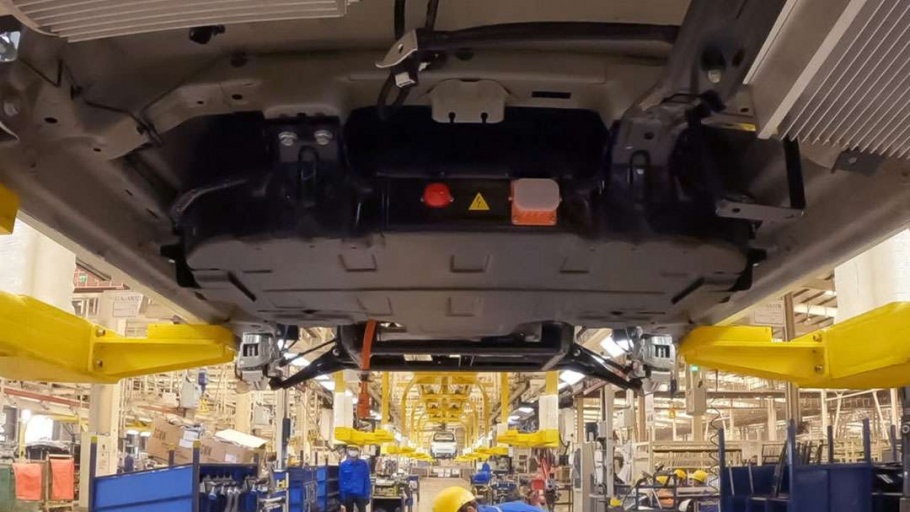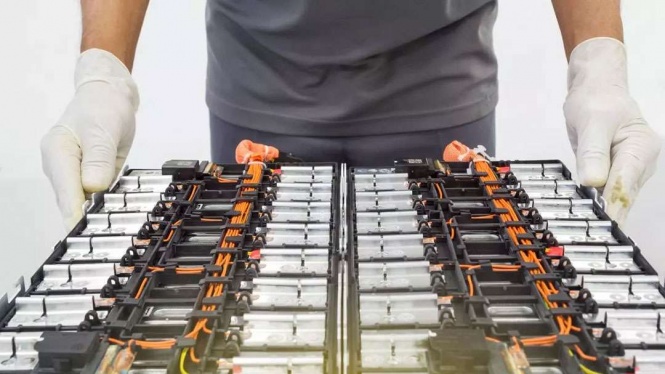MG Sets Modest Sales Targets for 2026
02 February 2026, 10:00 WIB
China sets new standards for the electric vehicle battery recycling process to be more environmentally friendly.

By Satrio Adhy
KatadataOTO – The growth of electric cars has been increasingly rapid recently. This situation is encouraging several parties to innovate.
Recently, China reportedly implemented new national standards for the recycling and utilization of Electric Vehicle (EV) batteries.
“The pilot program reported a recovery of over 99 percent of the main materials (of the battery),” wrote Carsnewschina, Tuesday (21/10).
According to IT-Home, five additional standards have been approved by the General Administration of Market Supervision (GAMS).

The standards above consist of aspects such as recycling and dismantling specifications for electric car power storage units.
Then, the detection of residual energy in EV batteries. This ensures they are safe when dismantled and recycled.
In practice, recycling companies in China have achieved recovery rates of up to 99.6 percent for nickel, cobalt, and manganese.
Meanwhile, for lithium-based electric car batteries, up to 96.5 percent has been successfully recovered.
This success marks China's highest achievement in their efforts to recycle the power storage units of electric four-wheeled vehicles.
Furthermore, it shows that an integrated recycling system can yield various benefits, ranging from the economic, social, to ecological sectors.
China also proves that they can provide significant value to the EV ecosystem. So it's not just about selling electric cars.
However, the Land of the Bamboo Curtain also supports managing battery waste to be more environmentally friendly.
Moreover, now companies from upstream to downstream, such as raw materials, production, to recycling and battery reuse, are combined.
They are part of a national technical committee formed jointly with GAMS and the Ministry of Industry and Information Technology (MIIT). Thus, they can establish new standards for battery waste processing.
In the same report, China is said to be actively involved in the standardization process for electric car batteries at the international level.
This approach is taken to address aspects such as performance evaluation of new power storage units, classification systems, and general guidelines for recycling used batteries.

For example, a proposal led by China regarding the ‘General Guideline for Deep Discharge in Battery Recycling and Utilisation’.
The proposal has been approved as an international standard project. This step also affirms their ambition to become a world leader in battery waste management.
Nearly 40 experts from China are participating in the international battery technical committee, ensuring full support in the standard-setting process.
Related Articles
02 February 2026, 10:00 WIB
01 February 2026, 09:00 WIB
31 January 2026, 19:00 WIB
31 January 2026, 15:00 WIB
30 January 2026, 19:00 WIB
Latest
02 February 2026, 10:00 WIB
Sales are trailing competitors, and MG declined to elaborate on its sales target for 2026.
02 February 2026, 09:00 WIB
Chery hybrid cars offer more benefits to consumers in Indonesia, making them a popular choice.
02 February 2026, 08:00 WIB
The Police launched Operation Keselamatan Jaya 2026 to curb the number of accidents and traffic violations on the roads.
02 February 2026, 07:00 WIB
Yamaha is confident that the target set by AISI can be achieved this year, with several conditions.
01 February 2026, 17:17 WIB
Toyota FT 86, Vespa Corsa 125, and Toyota Alphard are three of Reza Arap's many vehicles.
01 February 2026, 15:00 WIB
Shell, BP AKR, and Vivo lowered fuel prices for the February 2026 period by varying amounts.
01 February 2026, 13:00 WIB
Toyota Motor Corporation is paying closer attention to its sales in Indonesia, which have significantly declined.
01 February 2026, 11:00 WIB
Toyota group sales break a new record and become the world's best-selling manufacturer in 2025, surpassing Volkswagen.